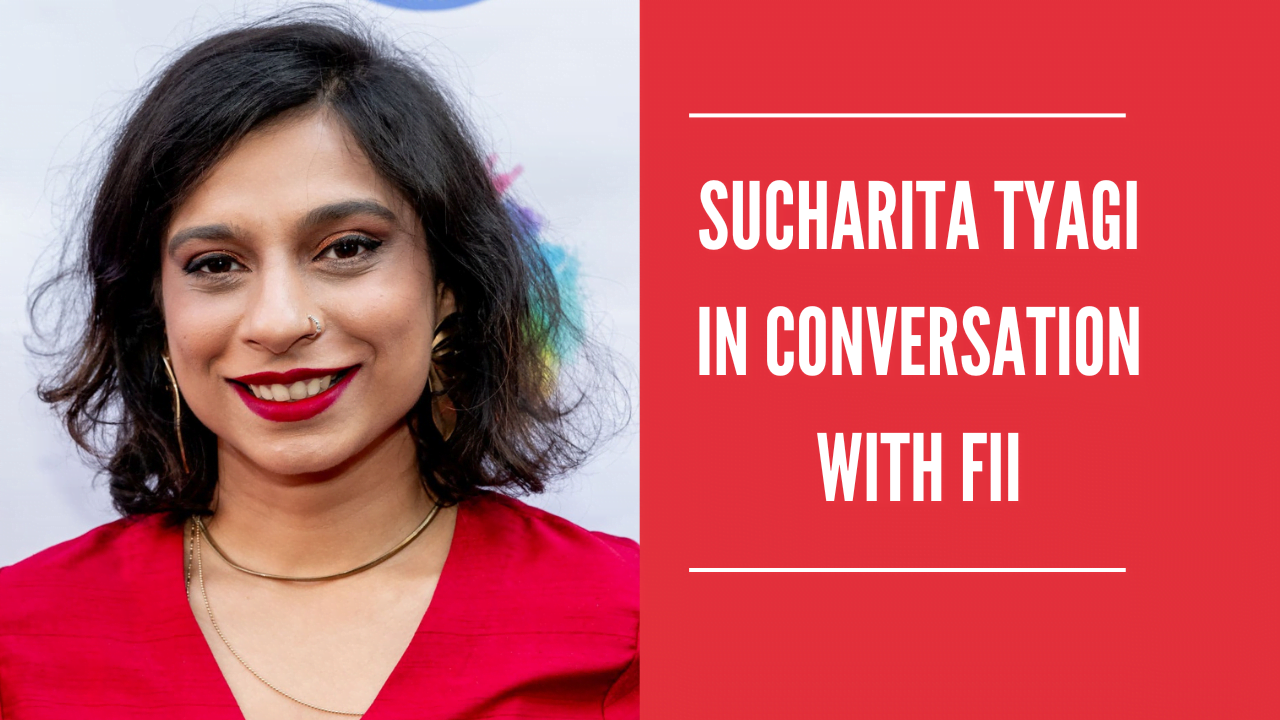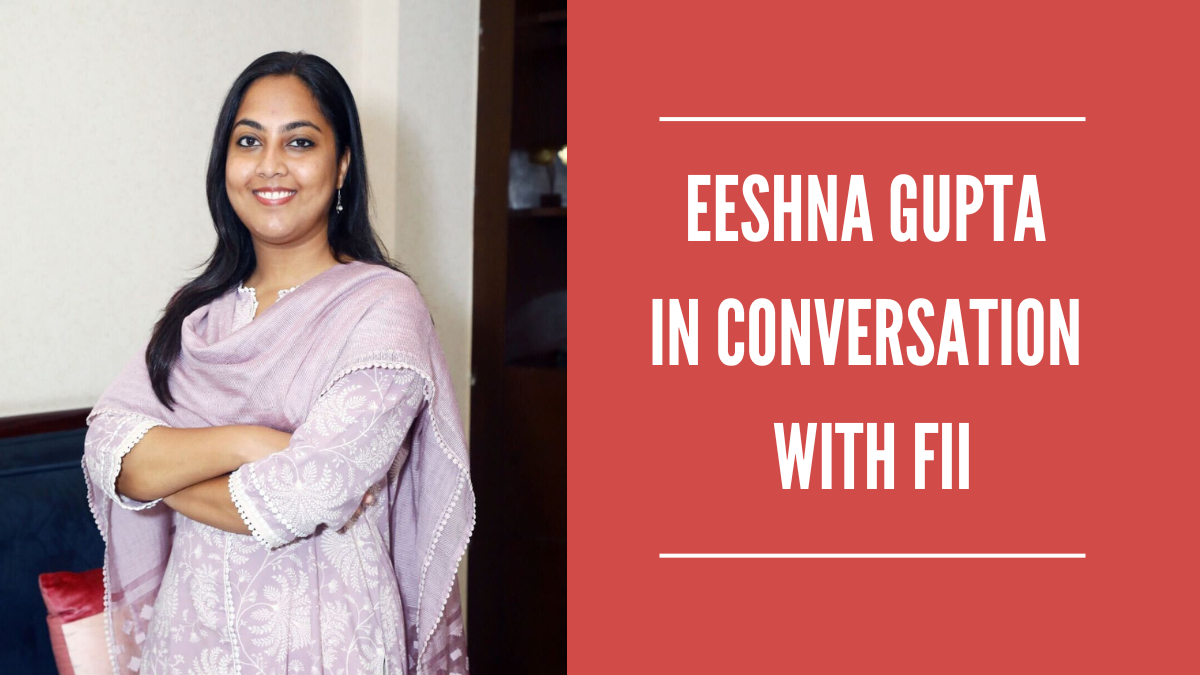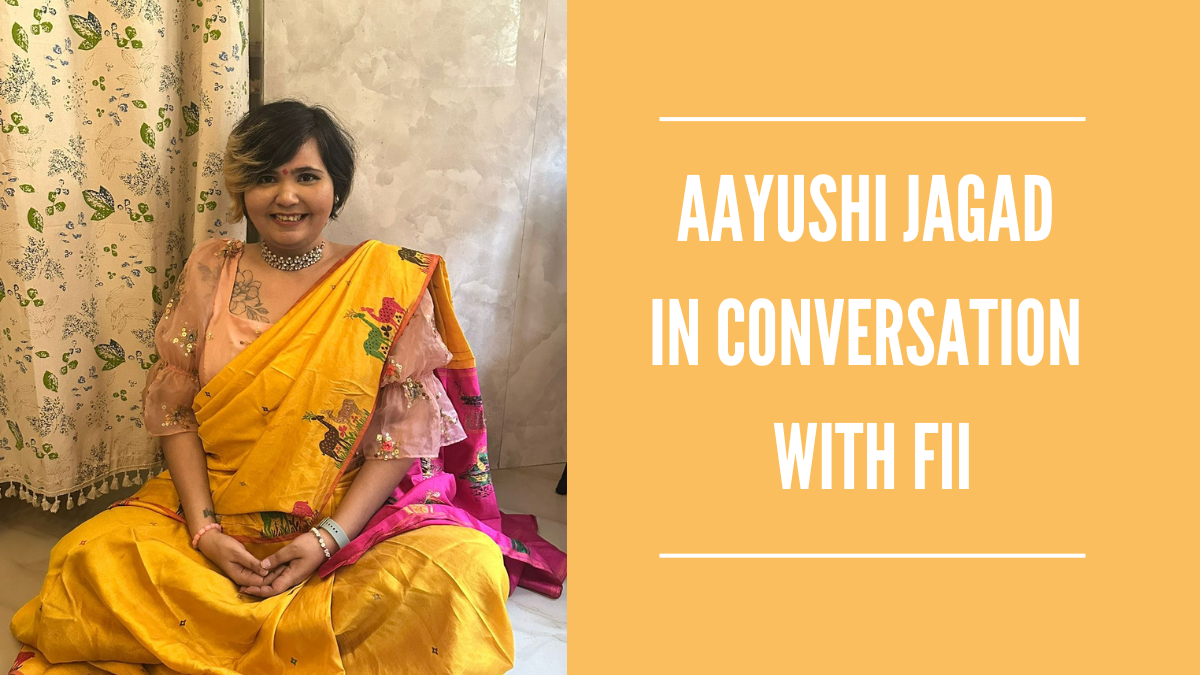Sucharita Tyagi is a film critic and a former radio jockey. She started her career as a radio jockey in Delhi before foraying into web content through her YouTube videos for film reviewing platforms. She started her journey as a film critic in the year 2015 when she began writing and hosting her segment titled “Not A Movie Review” for Film Companion.
In 2018 she was appointed as a member of the Film Critics Guild. Presently she runs her own YouTube channel where she reviews films and shows, interviews artists and analyses cinema among other things.
In a conversation with FII, Sucharita Tyagi talks about propaganda films, censorship, and her transition from RJ to film critic.
FII: You were a Radio Jockey for the greater part of your professional career. Did the transition from RJ to film critic, from audio to an audiovisual format come naturally to you?
Sucharita: I loved being on video! Even while I was an RJ, I was used to doing skits. That was a time when Instagram and YouTube were becoming major platforms for video content too, so the transition was never a struggle for me. When the opportunity came along to do more of the video format, it was something fun that I wanted to learn more about.
FII: As a film critic do you ever reach a point of saturation with watching films or shows? If so, how do you counter this?
Sucharita: That’s a yes and a no question, because yes it is exhausting having to stay on top of everything coming out in India and America, add to that the releases on streaming. There is so much good storytelling out there — but you can’t physically watch everything, you are bound to miss out on something.
Though I still love watching films— I love analysing them, getting into their context, and speaking with the filmmakers and the actors behind the film.
FII: Your reviews have expanded in range so much since your transition from Film Companion to your channel. You have started covering films, series and documentaries from many languages other than just Hindi. Was this a conscious decision on your part?
Sucharita: It’s just me watching and wanting to talk about things. More often than not it ends up being about a Hindi film, then perhaps an English one, or a Malayalam or Kannada film, a Tamil or a Telugu movie. It’s not very often that I get to watch some of these films because it’s very rare that they have press shows or screenings in Mumbai.
Having said that, it is my channel and I run it according to my whims and fancies, to be honest — Do I watch a Vijay film at 6 am? If I don’t feel up to it this week, so be it. It depends entirely on my mood.
FII: You attended the Cannes Film Festival as a critic earlier this year. What was your biggest takeaway from the experience?
Sucharita: That it’s a whole different world out there! We in Mumbai are not aware of even a small percentage of the cinema that is being made in the world. Even looking at something like the level of film marketing in a place like Cannes — you realise the extent to which people are willing to go to make sure that their films get out there; the networking that happens and to see cinema being celebrated at a global stage was just mind-blowing.

I can’t wait to go back! Just being surrounded by so many people who’re passionate about cinema and coming from so many different cultures and languages was beautiful.
FII: One of the trademarks of your film reviews is your “women telling women stories” dance that you do for films made by a female filmmaker. When you originally thought of it did you plan for it to become this trademark or was it just something that you did spontaneously and eventually caught on?
Sucharita: It just happened on the spot when I was writing a review. I don’t quite remember what review it was when it cropped up for the first time but it just came to me. I added a dance and a silly tune to it. I liked saying it so much that I said it a bunch of times more and then I put it on a T-shirt and my social media. And it seems to resonate with a small group of people.
FII: Speaking of “women telling women stories,” do you think a filmmaker’s gender identity informs the way the characters are shaped in a story?
Sucharita: Not to say that men cannot write female characters — they have done so and they will continue to do so. But when a woman gets to tell her own story, when a non-binary person tells their own story, when a trans person tells their own story; those stories are more powerful, more authentic, more lived.

Gender identity makes a huge difference in the way you look at the world. This goes without saying. Your worldview is completely different depending on if you’re a man or a woman or a non-binary person or anywhere on the gender spectrum.
FII: What has “worked” in terms of box office collections in the years since the pandemic has been big-budgeted, star-studded, action films. It took the Marvel Cinematic Universe eleven years to finally have a feature film with a woman in the lead; how long do you think it will be before we get a big action film with say Alia Bhatt in the lead?
Sucharita: I think we’ve already got one with Rani Mukherjee’s Mardaani. I wish to see more of that. I think that if more women are allowed to helm more action films, we would see more women starring in an action film. Gayathri of Pushkar-Gayathri (of Vikram Vedha fame) is one name that comes to mind when we’re talking of women who are making action films.
That’s of course a duo rather than a solo act. Sudha Kongara made Saala Khadoos with Madhavan which may or may not qualify as an action film. Kathryn Bigelow has been doing that (action films) her whole life. Cathy Ann who made Birds of
Prey — is such a ridiculously beautiful, bizarre action film. Hopefully more, soon.
FII: In the last few years there has been an uptick in films like The Kerala Story that have furthered Islamophobic and pro Hindu nationalist propaganda. To curb ideological misinformation governments sometimes ban such films. Do you agree with the view that propaganda films should be banned or censored?
Sucharita: Banning anything is never the answer. I don’t think censoring or banning anything is the answer, because that is such a slippery slope. But having said that, we don’t have a robust system of film appreciation, criticism or conversation in this country.
I do think the need of the hour is to have more free, open conversations around cinema— where film critics are not trolled for talking about these films on the internet, where it’s possible to have film festivals where judges and juries are free to talk about these films without having to fear the backlash from a certain group of people on this or that side.
Sucharita Tyagi
I don’t have an easy solution to this, but I do think the need of the hour is to have more free, open conversations around cinema— where film critics are not trolled for talking about these films on the internet, where it’s possible to have film festivals where judges and juries are free to talk about these films without having to fear the backlash from a certain group of people on this or that side.
About the author(s)
Keerthana (she/her) is a third-year English Literature student at St. Stephen’s College, Delhi University. She is interested in analysing art and pop culture through feminist and other sociocultural theories. She enjoys literature, music, films and the occasional cricket match.





